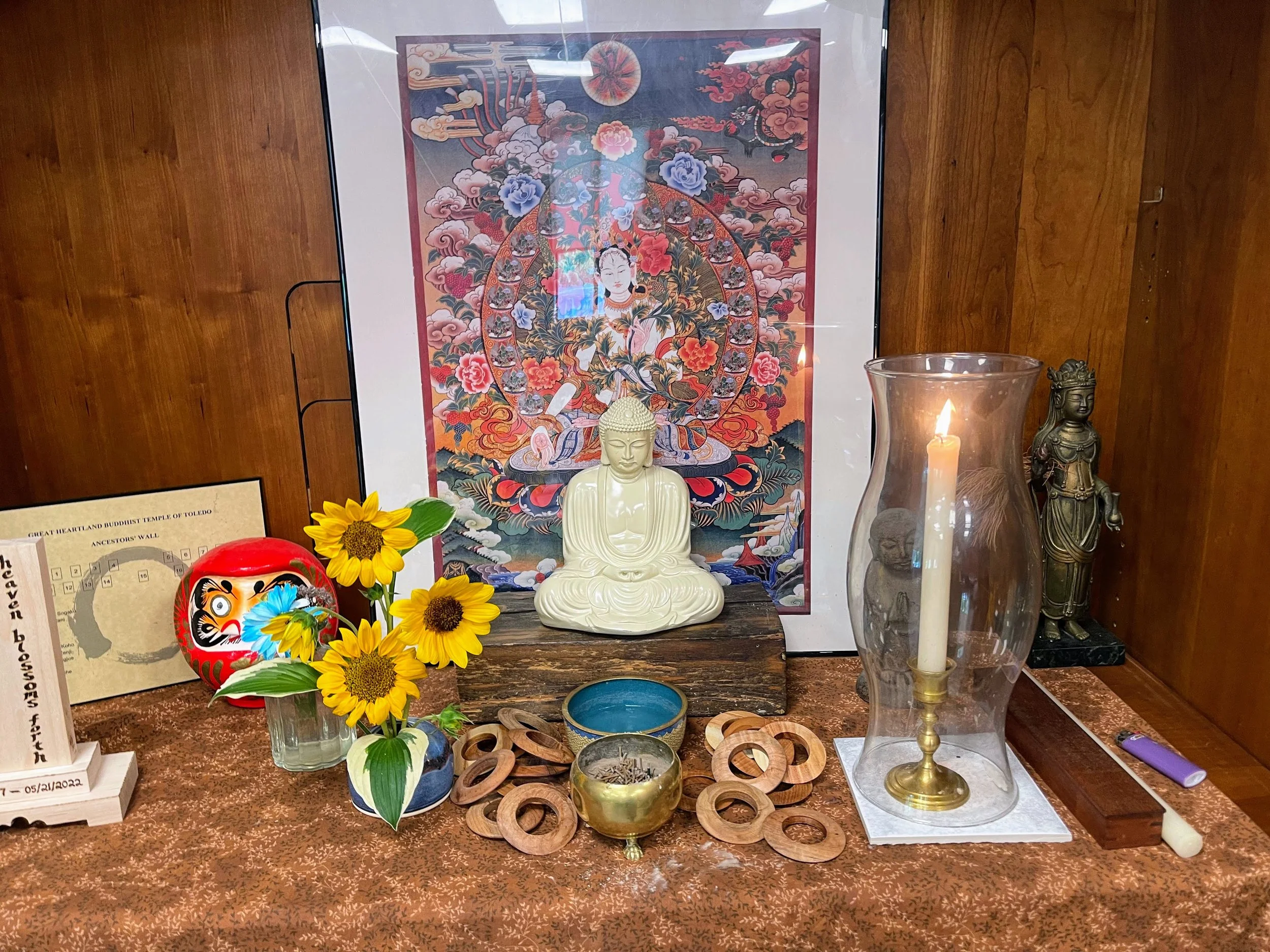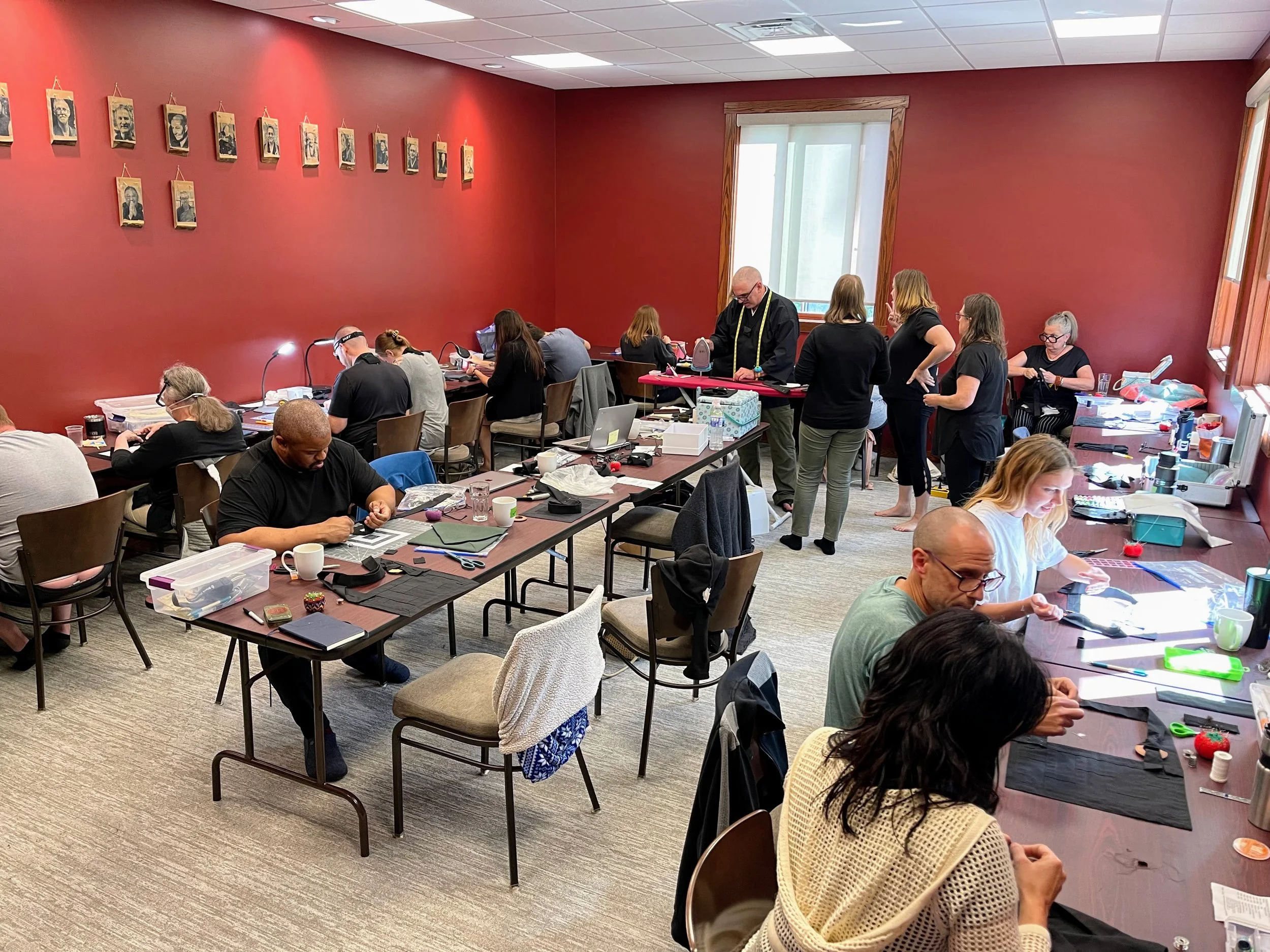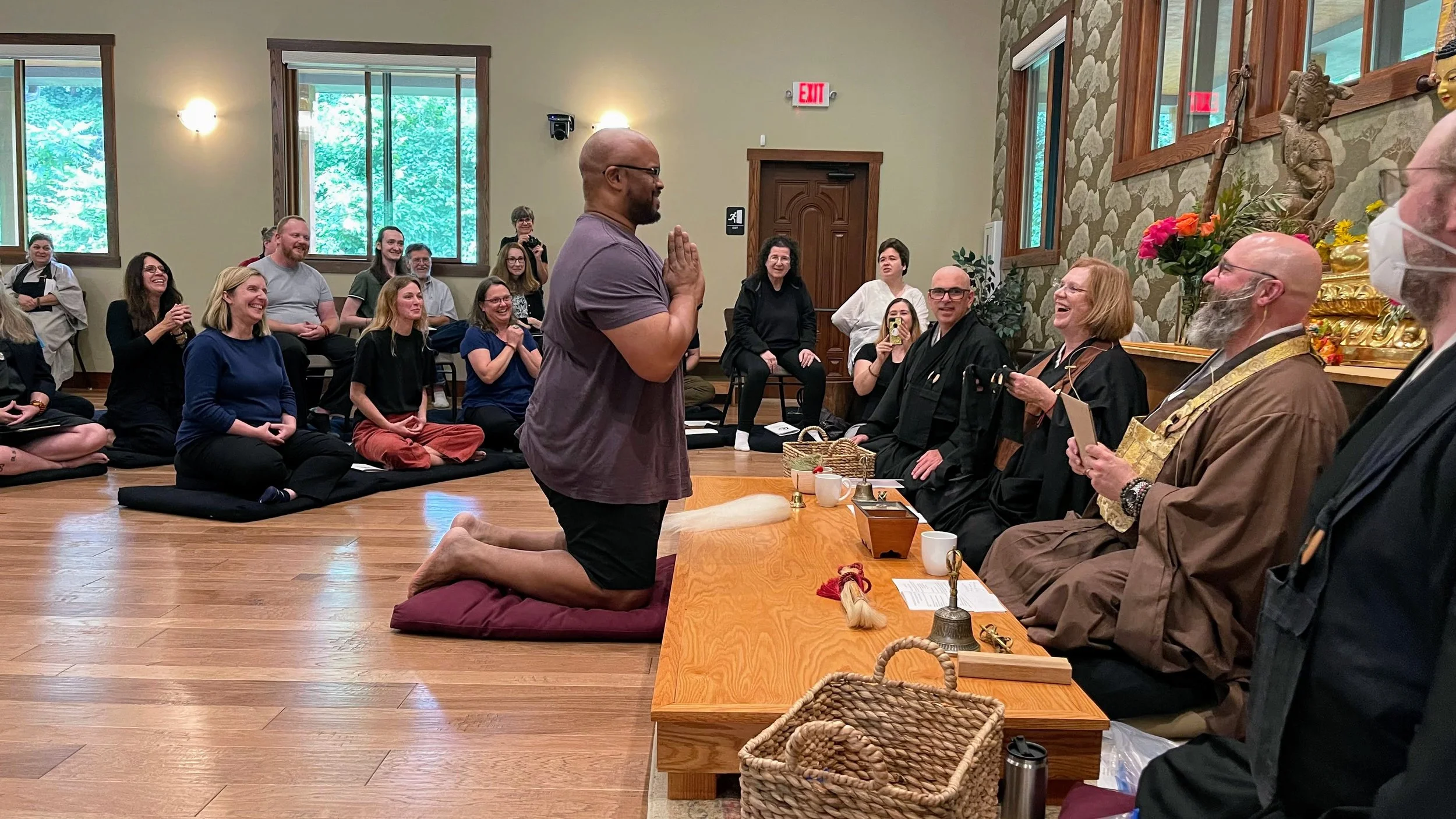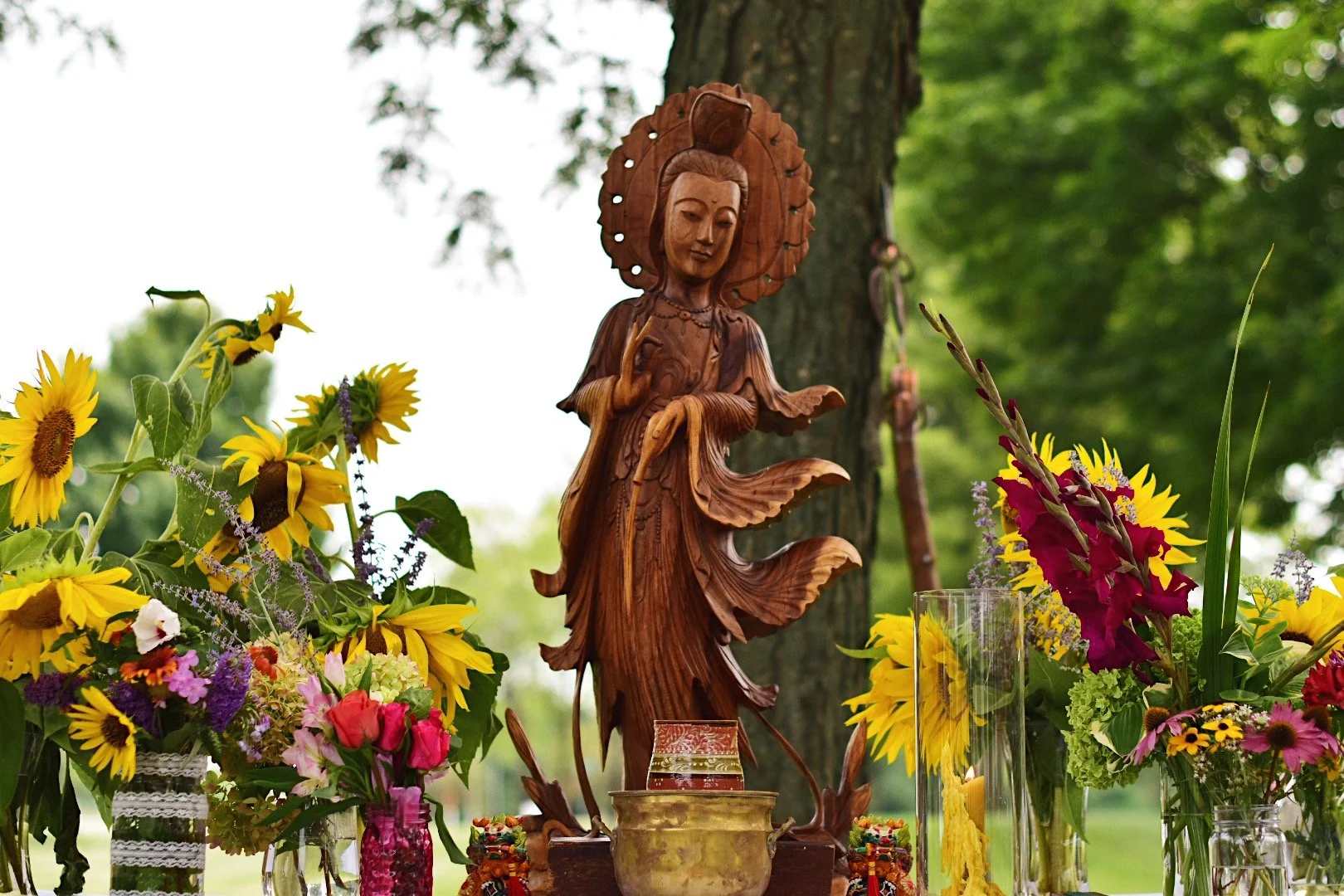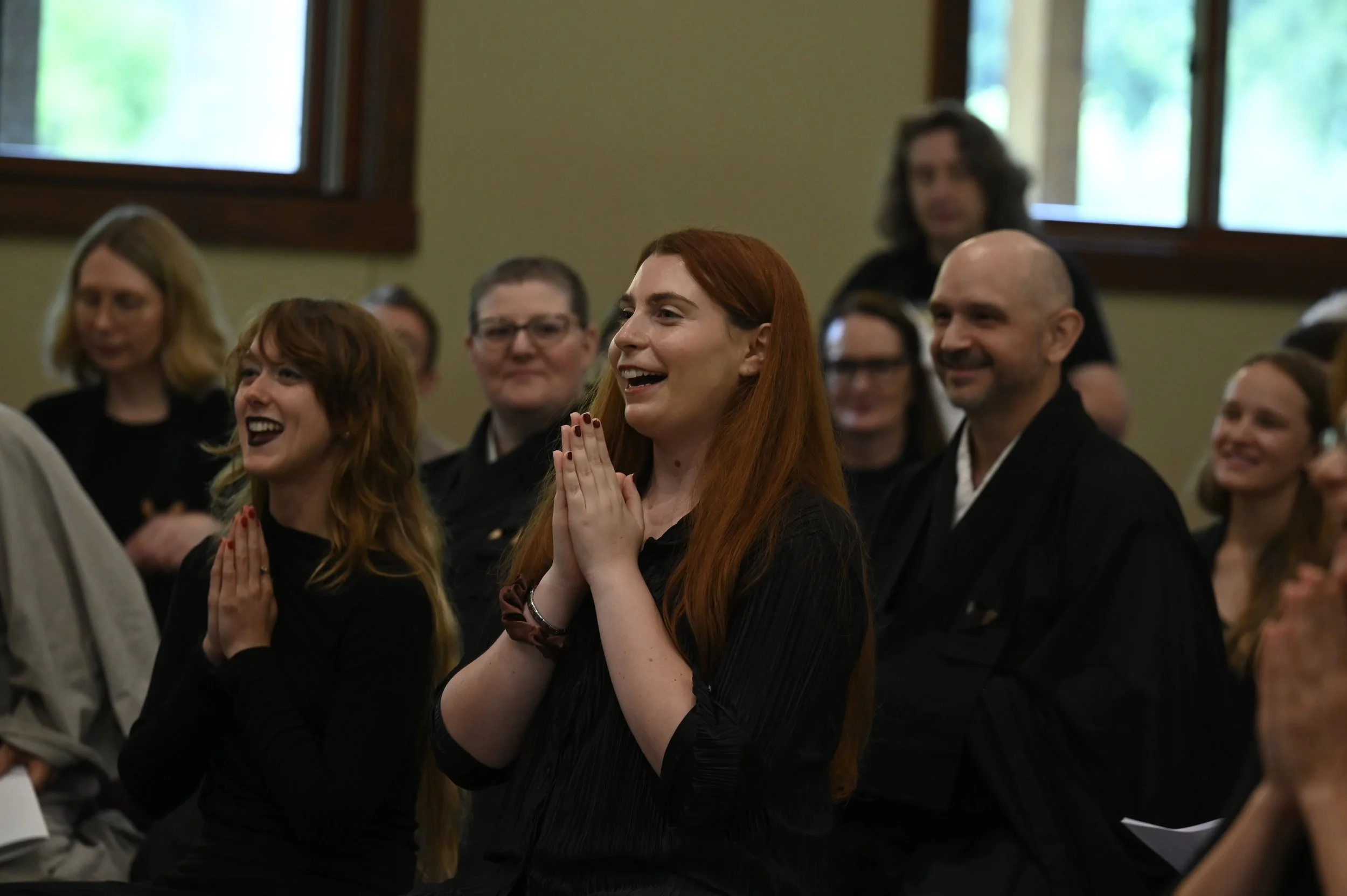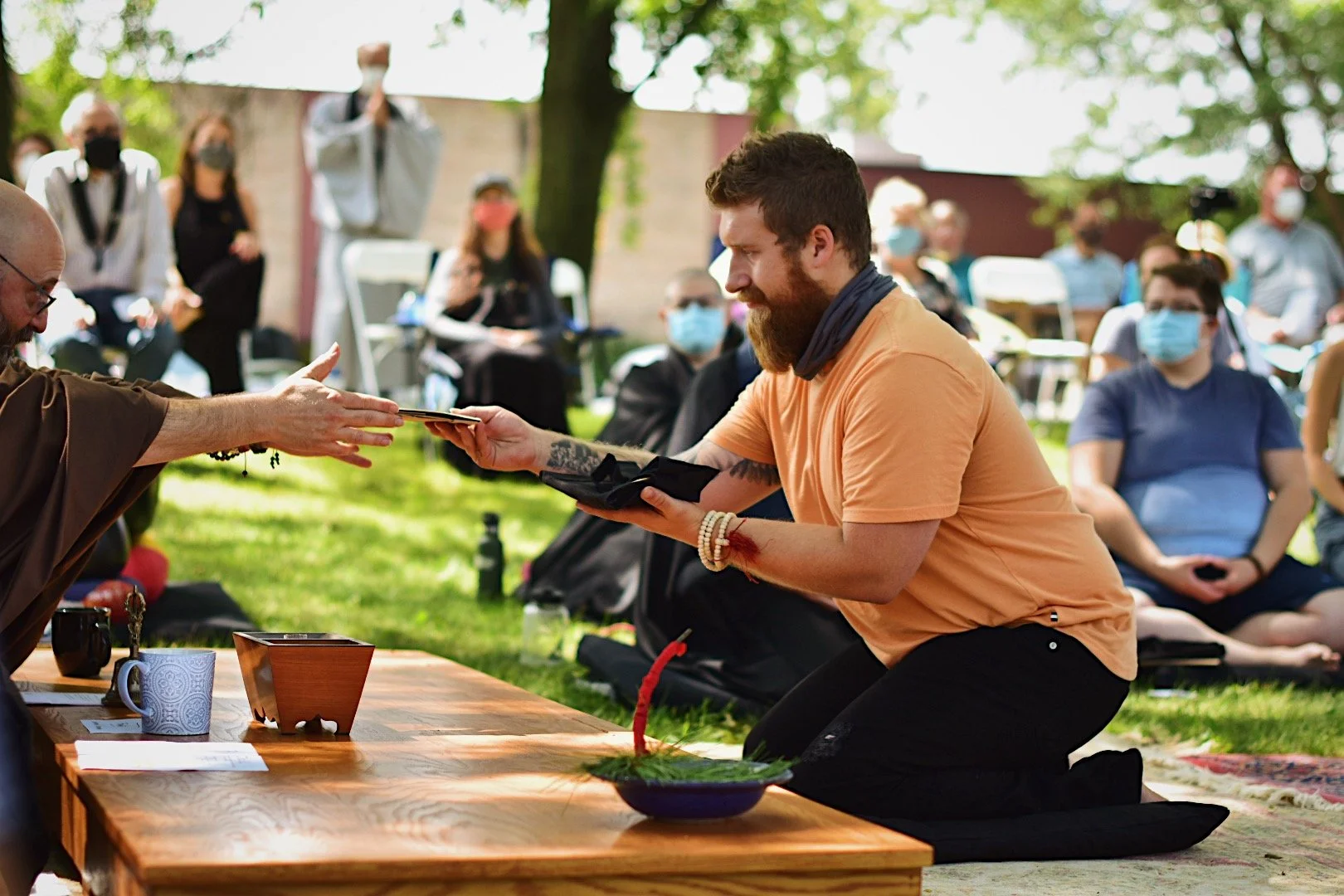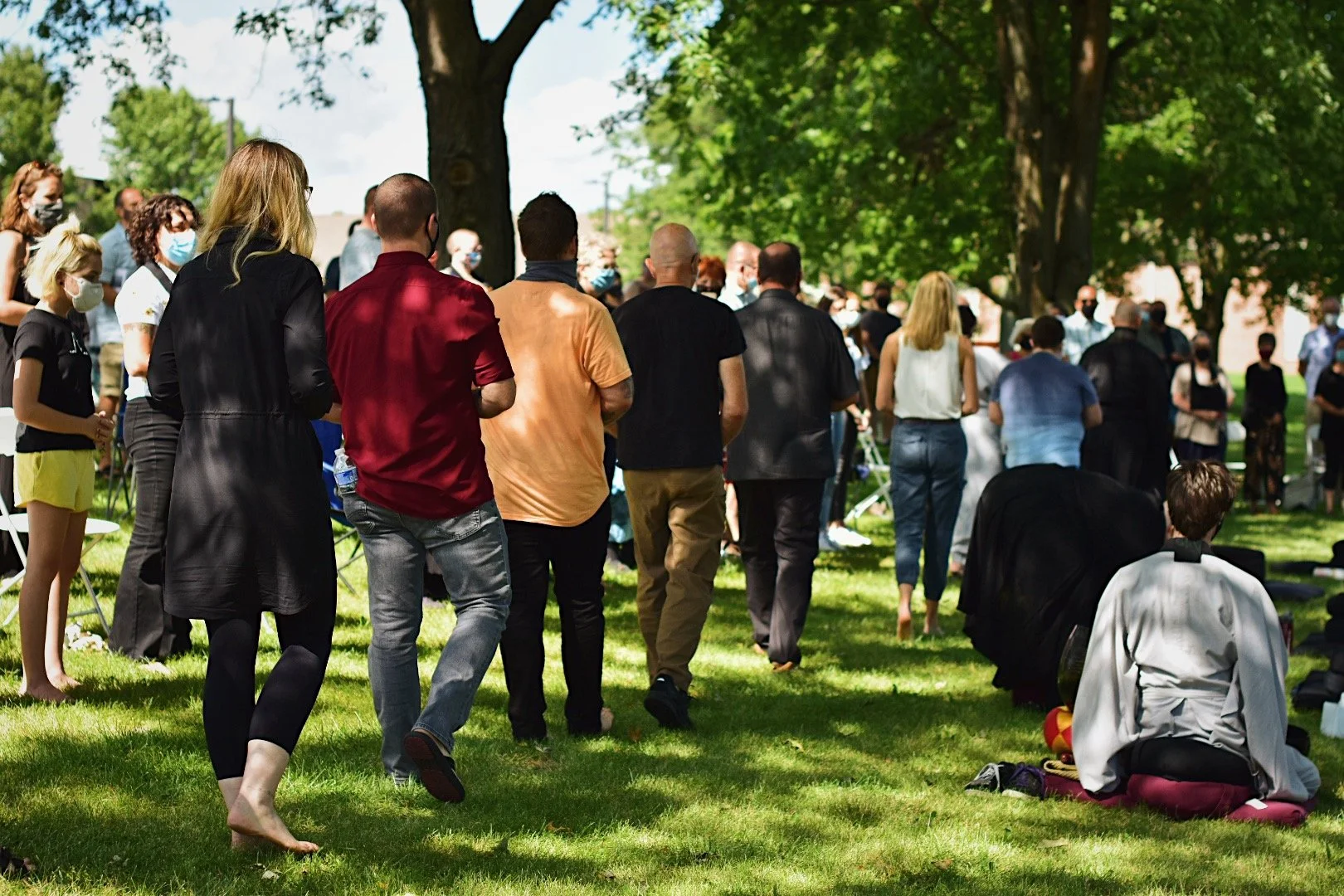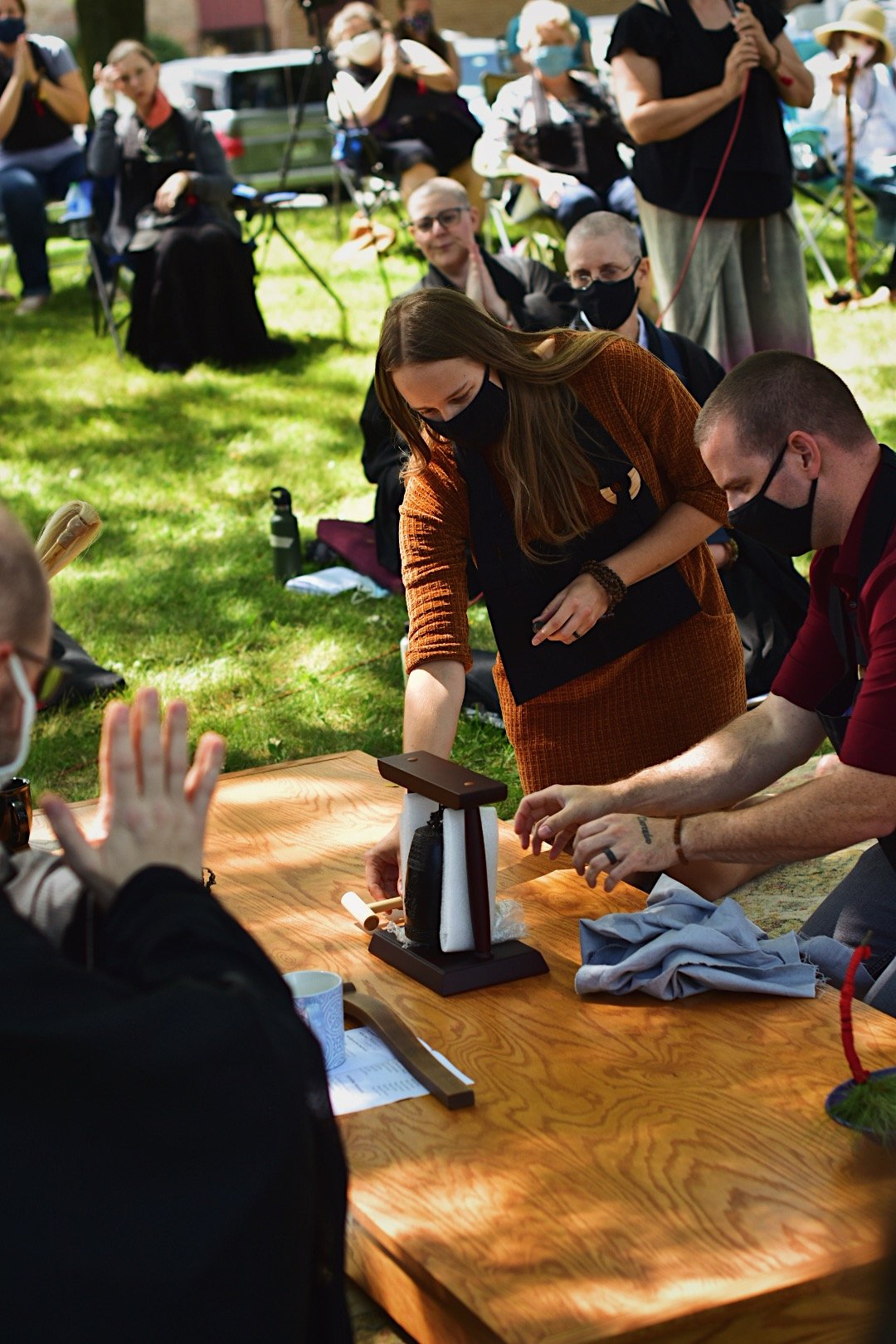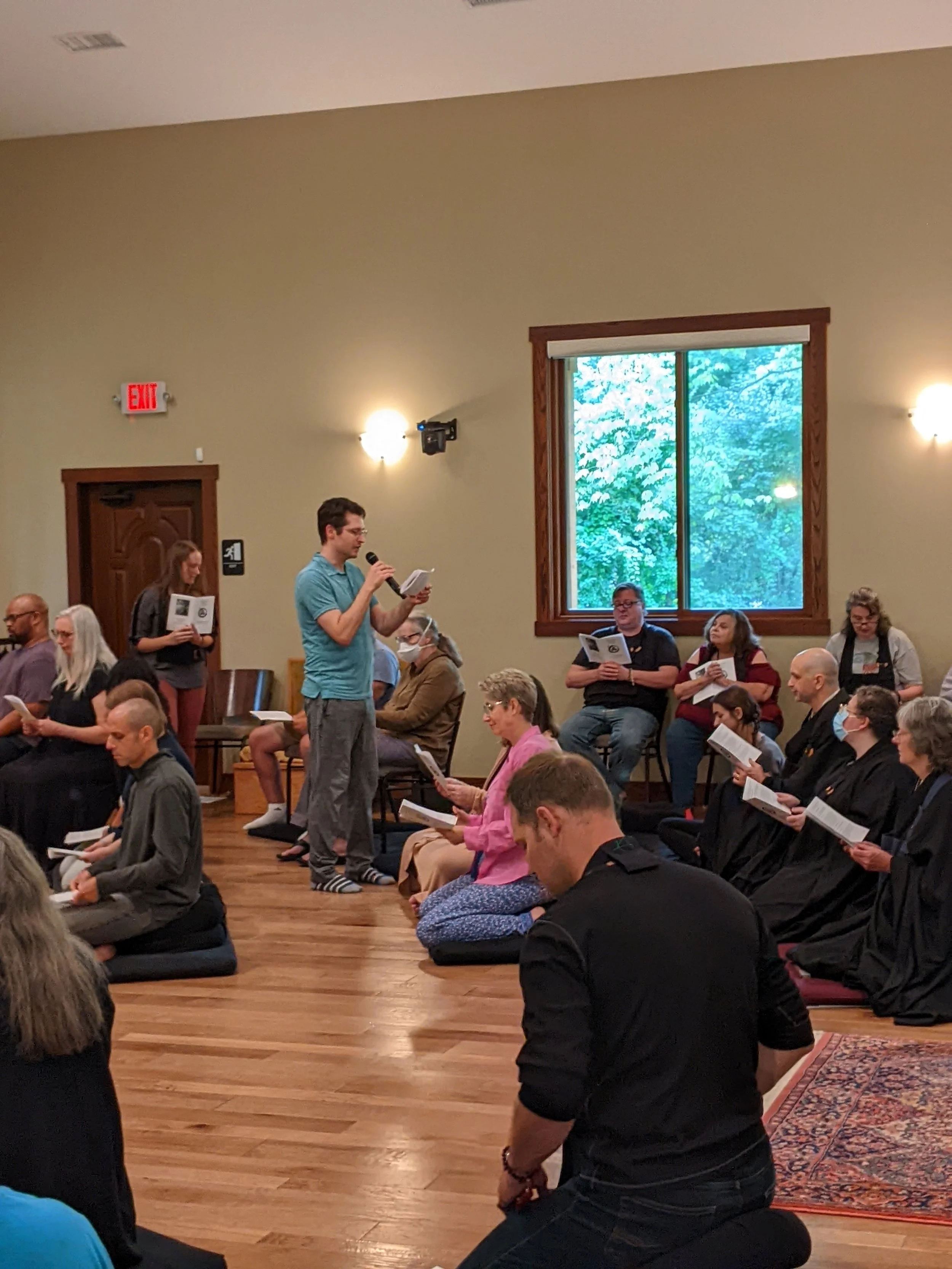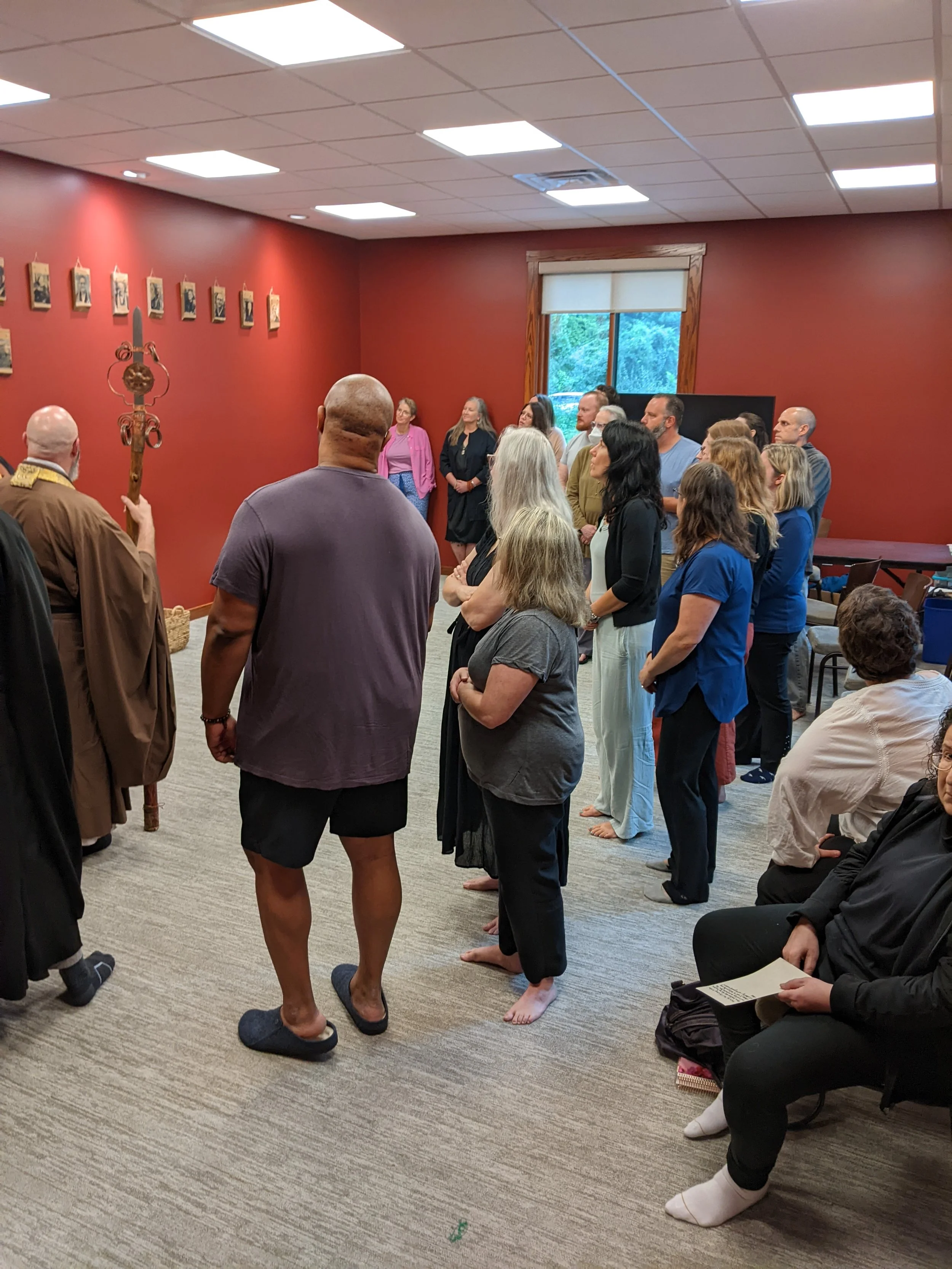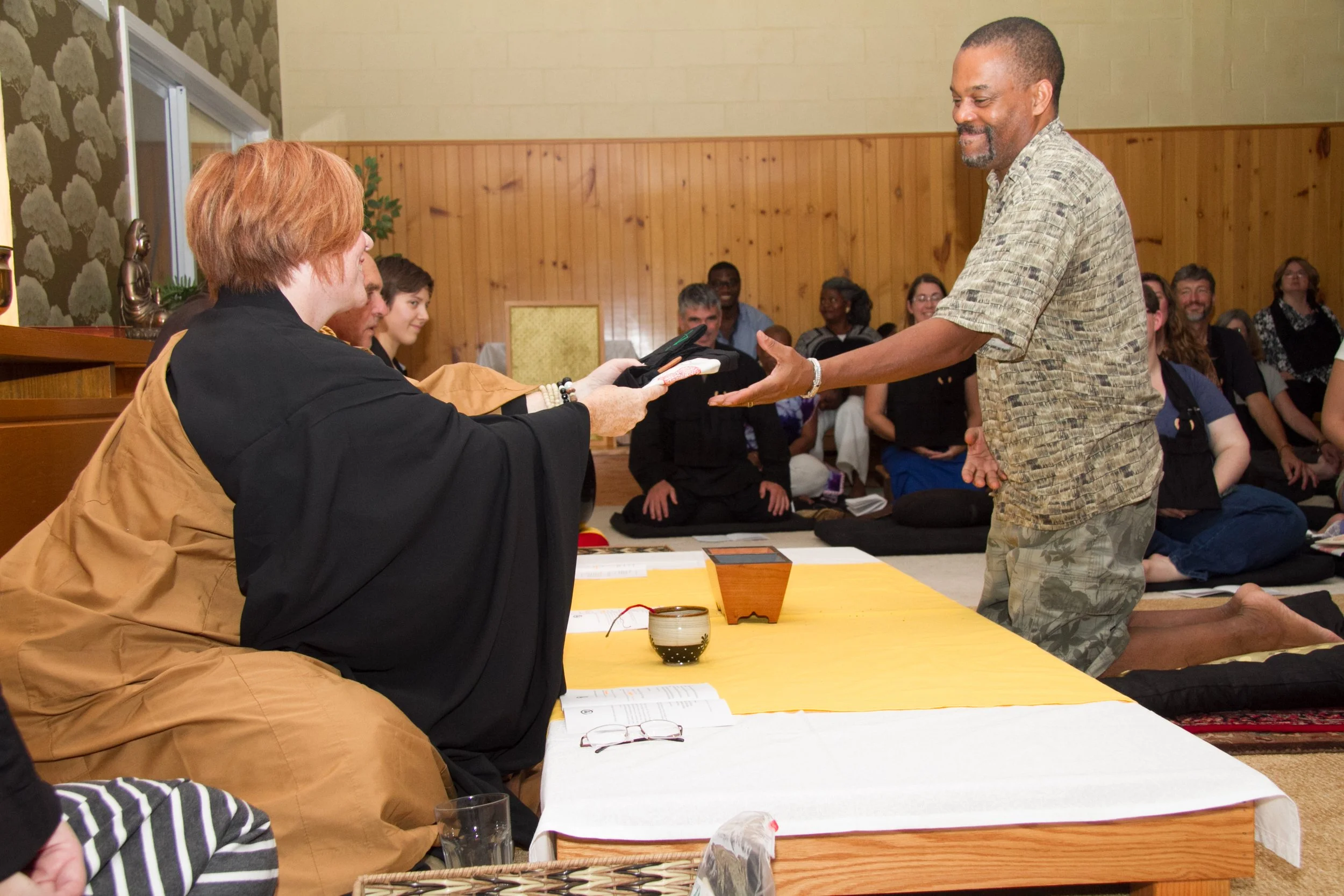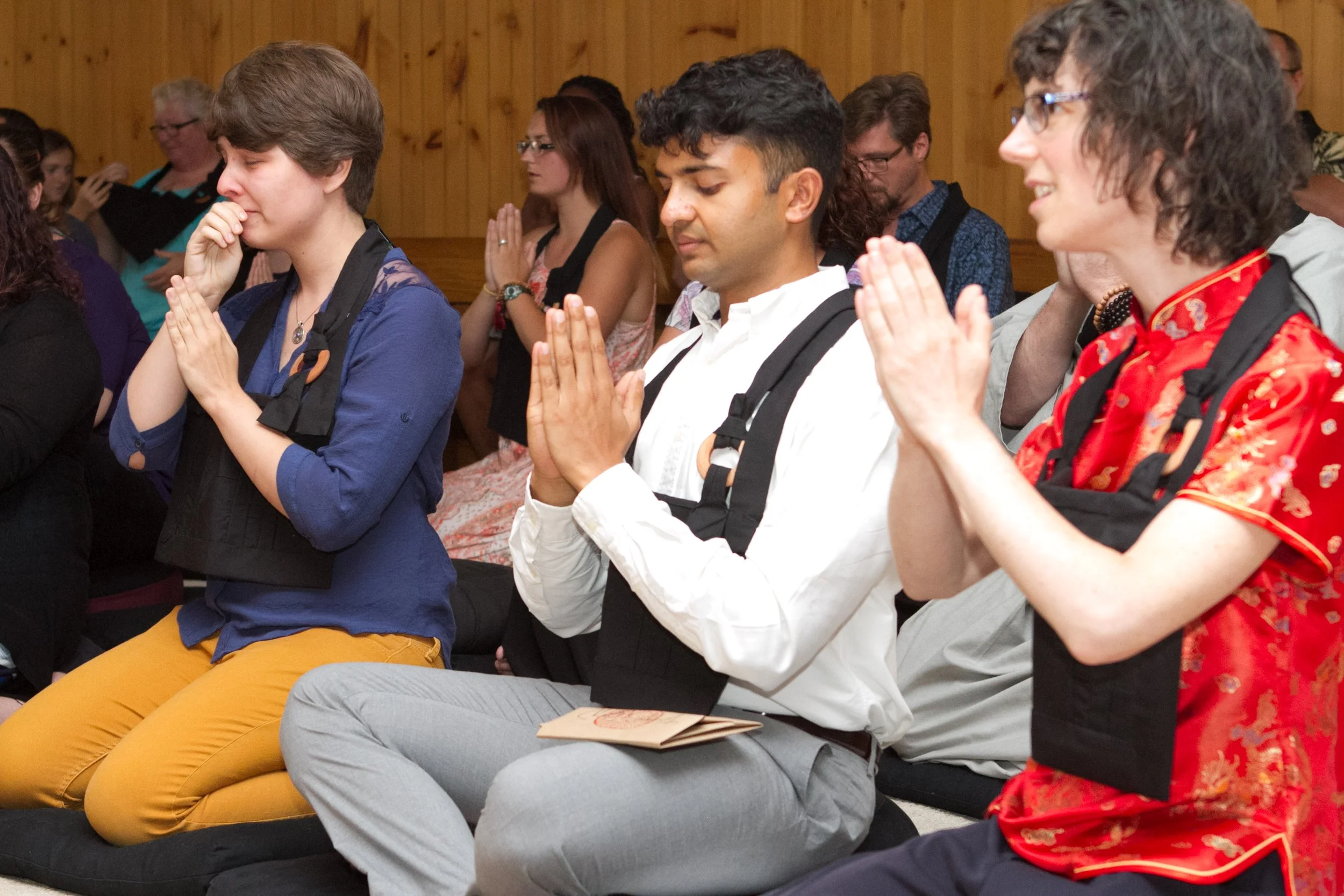The Sixteen Bodhisattva Precepts: our foundational moral and ethical teachings. At BTT, we ask ourselves to find out: What do these precepts mean for you, and how will you realize them in your life?
Apply to Join the 2026 Jukai Class
Take the next step on your Zen Buddhist spiritual journey by encountering the Sixteen Bodhisattva Precepts as foundational moral and ethical guideposts. With the guidance of Rinsen Roshi and Do'on Roshi, and with a cohort of likeminded peers, find out: What do these precepts mean for you and how will you realize them in your life?
Apply by Saturday March 7, 2026.
-
Zen is beyond words and forms, yet it has been handed down to us from person to person through the container of Buddhist practice for generations. As Zen students we are called to creatively embody the essence of this practice. If we hold too tightly to form, we miss the essence. If we have no form we miss the opportunity to walk the paths hewn with so much loving care by those who came before. Our challenge as followers of the way of Zen is to use and create forms skillfully to deepen our practice together.
The Sixteen Bodhisattva Precepts in the Zen tradition were originally designed as guidelines for living a life that supports and deepens practice in everyday life. They can also function as an endless source of contemplation and help us to continually awaken to the universal nature of reality that we call Buddha Nature. "Taking the precepts" with a teacher who has received Dharma transmission from his or her teacher is a way to publicly acknowledge commitment to this way that is beyond words and forms. We vow together to embrace the actual circumstances of our lives, and to enter fully into whatever we encounter.
Each year, BTT forms a cohort of students who deeply engage with the precepts for about 20 weeks, culminating in a public ceremony in August.
Taking the precepts is entirely optional for members of the Buddhist Temple of Toledo. You may feel that this is a natural and important step on your spiritual journey, or you may feel that taking the precepts is entirely unnecessary and perhaps even a distraction from your true path. You will be supported in whatever decision you make.
-
The Three Treasures
Oneness, the Awakened nature of all beings. I take refuge in the Buddha.
Diversity, the ocean of wisdom and compassion. I take refuge in the Dharma.
Harmony, the interdependence of all. I take refuge in the Sangha.
The Three Pure Precepts
Not knowing, thereby giving up fixed ideas about myself and universe, I vow to cease from evil.
Bearing witness to the joy and suffering of the world, I vow to practice good.
Healing myself and others, I vow to save all beings.
The Ten Grave Precepts
Recognizing I am not separate from all that is, I vow to take up the Way of Not Killing.
Being satisfied with what I have, I vow to take up the Way of Not Stealing.
Treating all beings with respect and dignity, I vow to take up the Way of Not Misusing Sexuality.
Listening and speaking from the heart, I vow to take up the Way of Not Speaking falsely.
Cultivating a mind that sees clearly, I vow to take up the Way of Not Intoxicating Mind and Body.
Unconditionally accepting what each moment has to offer, I vow to take up the Way of Not Discussing the Faults of Others.
Speaking what I perceive to be the truth without guilt or blame, I vow to take up the Way of Not Praising Myself While Abusing Others.
Using all the ingredients of my life and Being Generous with the Fruits of my Dharma Practice, I vow to take up the way of Not Sparing the Dharma Assets.
Transforming suffering into wisdom, I vow to take up the Way of Not Indulging in Anger.
Honoring my life as an instrument of the Great Way, I vow to take the Way of not Defaming the Three Treasures.
-
Receiving the precepts is the beginning of a life long journey and opens up new vistas for study and practice that are otherwise unavailable. We expect that you will see this as a true beginning to your study and practice of the way and will maintain a beginner's mind after receiving these gifts.
In contrast to some traditions where receiving the precepts is an impersonal or institutional affair offered for large groups of people that may never see each other again, the Teachers and Sangha of the Buddhist Temple of Toledo expect that after taking Jukai, members continue on as active participants in and supporters of the life of the Temple community, and that we will see you at weekly services, workshops and retreats on an ongoing basis as much as possible. If you have extended periods of absence from the Temple, the expectation is that you connect with the Teachers and keep in touch with fellow sangha members as best you can. It is also important that Jukai members make service to the sangha a part of their bodhisattva practice in some way, such as helping on caretaking and administrative committees, hosting a sangha circle, leading an affinity or support group and so on.
In receiving the precepts, you will receive a Dharma name, the robe of the Buddha and a lineage chart formally joining you to the lineage of ancestors as a Zen Buddhist practitioner. We expect that you will take these seriously and honor them fully.
If you are interested in a personal conversation about Jukai, please speak to any of our clergy including Teachers Rinsen Roshi and Do’on Sensei, and you are welcome to ask those who have already received the precepts about their experience.
If you have any logistical questions about the program, please email info@buddhisttempleoftoledo.org.
Interested in taking the precepts?
Each year there will be an application period in late winter. Keep an eye on this page for details. If you have any questions, contact us at info@buddhisttempleoftoledo.org for more information.

